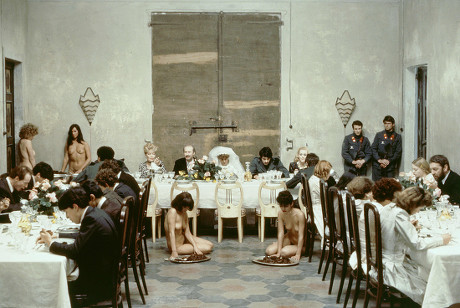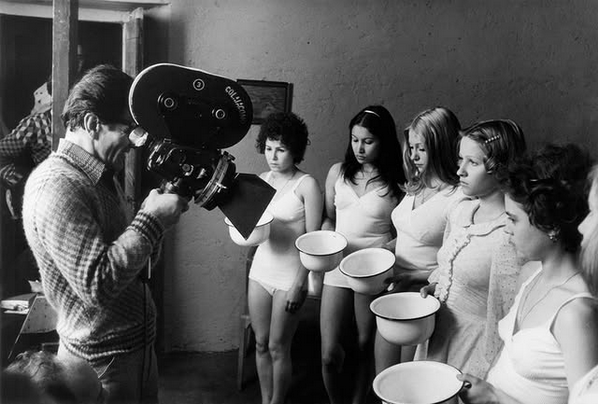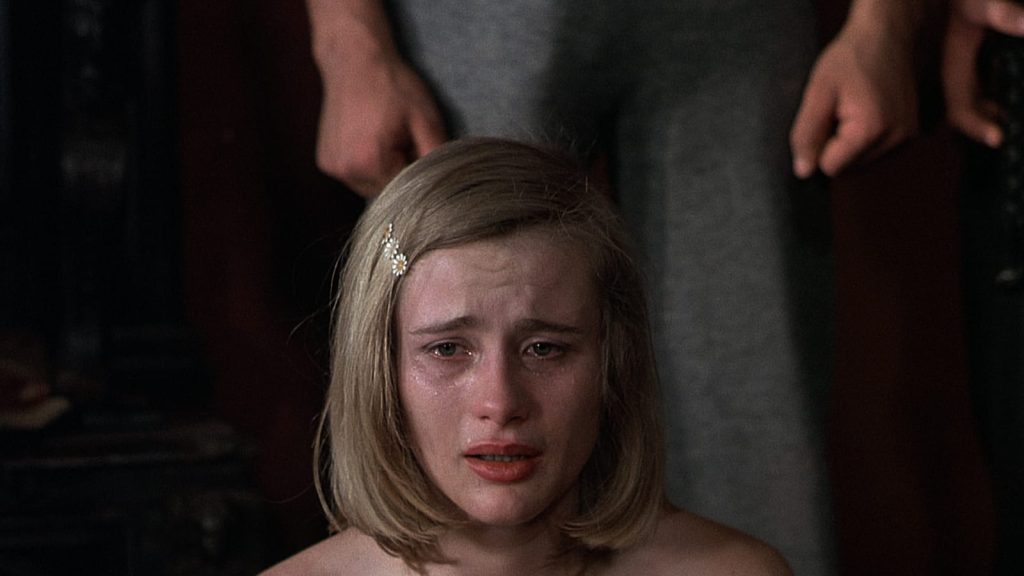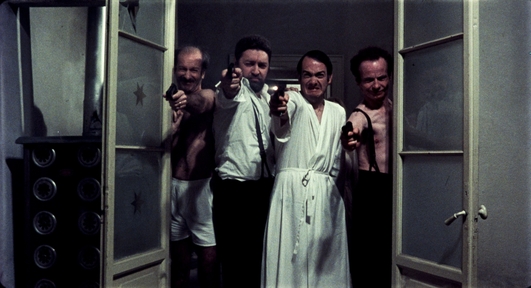
Salò (1975) was written and directed by Pier Pasolini as an adaptation of the notorious pornographic novel, The 120 days of Sodom, written by the Marquis de Sade while in the Bastille. It was part of the Naziploitation film boom in the mid-1970s. It was also Pasolini’s last film, released three weeks after his murder.
This movie will bore you, horrify you, or both.
Pasolini transplanted the story to Italy in the last days of WWII. Four fascists marry each other’s daughters, and form a covenant. They select a group of beautiful young women and handsome young men, some armed enforcers, and some elderly brothel madams, and seal themselves up in a chateau.

Trying to summarize the plot after this point would be pointless. Intentionally, there is no plot, as usually understood, just a series of scenes of rape and torture, juxtaposed with the beautiful bodies and interiors. Like bored, spoiled children, the fascists devise atrocities, reward and punish on a whim, and create laws for the sake of violating them. True power is not just to create and enforce rules, but to change them on a whim. The four rulers of this pocket reality transgress the norms of society, such as crossdressing or eating feces, not out of any libidinal drive for unconventional pleasure but the pure pleasure of transgression. The exercise of arbitrary authority requires no justification; power is its own means and end.

The camera remains a fly-on-the-wall, observing these events while preventing us from seeing any interiority of the characters. We’re watching rats eat each other in a closed experiment.
The numbing effect might very well be the point of this film. In the final scene, while the young men and women are being tortured and mutilated outside, two of the young fascist guards change the classical music on the radio to a different station of dance music. They dance with each other. Overexposure has burnt out their capacity to be morally outraged by what’s going on, so they just ignore it and do something else.

Of the various 1970s films grouped under the Naziploitation label, Salò is probably the hardest to watch, the most nihilistic and alienating. Something like Ilsa: She-Wolf of the SS can be viewed through the lens of camp, but this film doesn’t allow that detachment.
Liliana Cavani’s The Night Porter (1974) used the concentration camp environment to create dreamscapes of surreal beauty mixed with horror, whereas the micro-society of Salò is flat and naturalistic, horrific things done in a beautiful environment. The fascists have power of life and death over the others, eagerly enforced by their guards. There is no redemptive fantasy of reciprocal love as there is between Max and Lucia, nor any possibility of it.

If there’s a climax, in the usual sense, it’s when the fascists learn that one of the guards has been sleeping with a black maid, who has been off-camera for most of the running time. They gun down the guard and the maid, not wit sadistic pleasure but grim necessity. The one thing forbidden in this world is the possibility of subordinates having their own subjectivity.
Tinto Brass’ Salon Kitty (1976) viewed fascism as the political expression of the psychology of sadism and masochism; ideals of German nationalism or racial purity are just window dressing, rules to be broken on the way to perfect obedience. Salò is what happens when fascism sheds all pretenses.
That’s why there is no narrative conclusion to Salò, because there is no end of this “game” of power. “Game” is probably a misnomer for this situation; it implies an interaction with rules, moves and counter-moves, a struggle for power between two or more parties. Pulling the wings off a fly isn’t a “game” by that definition, and what these fascists are doing isn’t a “game” either. BDSM, in my humble opinion, is a game.



